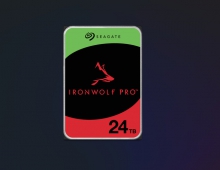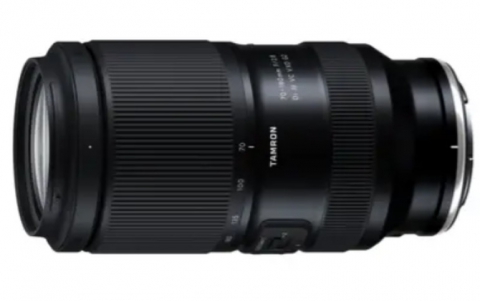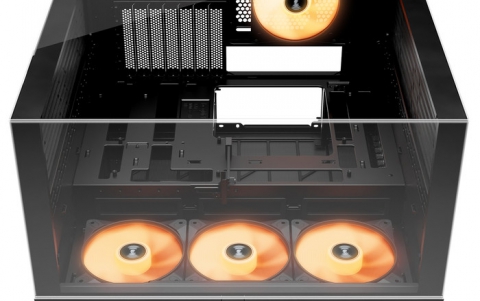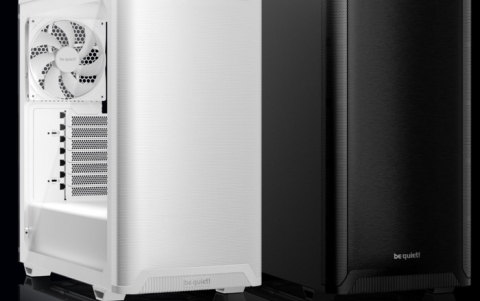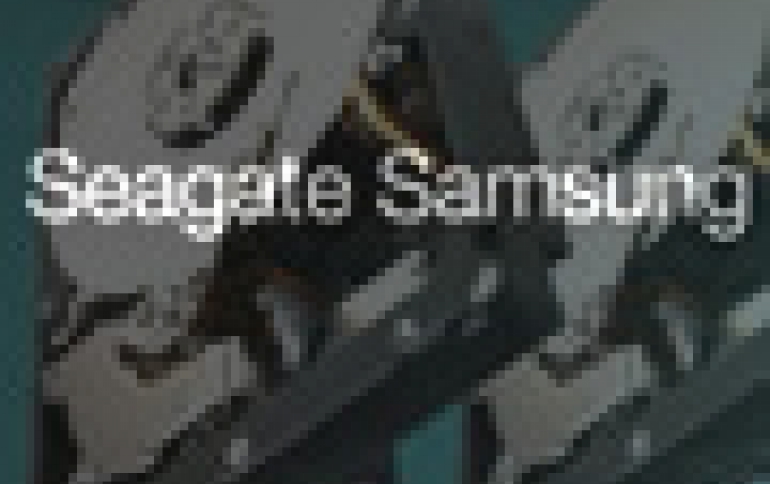
Seagate Completes Acquisition of Samsung's Hard Disk Drive Business
Seagate Technology plc on Tuesday announced the closing of the transaction to acquire the hard disk drive (HDD) business of Samsung Electronics, after receiving approval for the deal in Australia, China, and the European Commission.
Under the terms of the transaction, Seagate has gained select elements of Samsung's HDD business, including assets, infrastructure and employees. These assets include Samsung's M8 product line of high-capacity, 2.5-inch HDDs. Samsung employees joining Seagate include a number of senior managers and design-engineering employees from Samsung's Korea facility, who will focus on development of small form-factor products for the mobile compute market. N.Y. Park, senior vice president and general manager, will oversee Seagate's product development activities in Korea and serve as country manager of the Korea design center, reporting to Bob Whitmore, Seagate's executive vice president and CTO.
"Together, Seagate and Samsung have aligned our current and future product development efforts and roadmaps in order to accelerate time-to-market efficiency for new products and position us to better address the increasing demands for storage," said Steve Luczo, Seagate chairman, president and CEO. "It is an exciting time in the industry with rapidly evolving opportunities in many markets including mobile computing, cloud computing, and solid state storage."
This transaction was announced in April 2011 along with a series of other agreements between Seagate and Samsung. Seagate is supplying disk drives to Samsung for PCs, notebooks and consumer electronics devices. Samsung is supplying its semiconductor products for use in Seagate's enterprise solid state drives (SSDs), solid-state hybrid drives and other products. The companies have also extended and enhanced their existing patent cross-license agreement and have expanded cooperation to co-develop enterprise storage solutions.
"The strategic relationship will open new opportunities for the two companies by mutually complementing each other's creative technology solutions for a broad diversity of IT applications," said Oh-Hyun Kwon, vice chairman of Device Solutions of Samsung Electronics.
The transactions and agreements substantially expand Seagate's customer access in China, Southeast Asia, Brazil, Germany and the Russian Federation. To ease the transition of products and technologies, Seagate will retain certain Samsung HDD products under the Samsung brand name for 12 months, and maintain or establish a number of independent operations including sales staff, key production lines and R&D.
The combined value of these transactions and agreements is approximately US $1.4 billion, consisting of 45,239,490 Seagate Ordinary Shares and the remaining balance settled in cash. In addition, Samsung will designate a nominee to join Seagate's Board of Directors.
In 2010, HDD shipments from both Seagate and Samsung added to 261.2 million units, giving the combined companies 40 percent of the HDD market, according to IHS iSuppli. Western Digital and Hitachi Global Storage Technologies held the number one position with a 50 percent share.However, the market shares are likely to change in this quarter and early next year after the Thailand floods halted production at the facilities of Western Digital in the country, though the supply chain to Seagate's factories in the country was also affected.
Western Digital said in March that it would buy Hitachi Global Storage Technologies for $4.3 billion in cash and stock. The acquisition is expected to close by March next year.
"Together, Seagate and Samsung have aligned our current and future product development efforts and roadmaps in order to accelerate time-to-market efficiency for new products and position us to better address the increasing demands for storage," said Steve Luczo, Seagate chairman, president and CEO. "It is an exciting time in the industry with rapidly evolving opportunities in many markets including mobile computing, cloud computing, and solid state storage."
This transaction was announced in April 2011 along with a series of other agreements between Seagate and Samsung. Seagate is supplying disk drives to Samsung for PCs, notebooks and consumer electronics devices. Samsung is supplying its semiconductor products for use in Seagate's enterprise solid state drives (SSDs), solid-state hybrid drives and other products. The companies have also extended and enhanced their existing patent cross-license agreement and have expanded cooperation to co-develop enterprise storage solutions.
"The strategic relationship will open new opportunities for the two companies by mutually complementing each other's creative technology solutions for a broad diversity of IT applications," said Oh-Hyun Kwon, vice chairman of Device Solutions of Samsung Electronics.
The transactions and agreements substantially expand Seagate's customer access in China, Southeast Asia, Brazil, Germany and the Russian Federation. To ease the transition of products and technologies, Seagate will retain certain Samsung HDD products under the Samsung brand name for 12 months, and maintain or establish a number of independent operations including sales staff, key production lines and R&D.
The combined value of these transactions and agreements is approximately US $1.4 billion, consisting of 45,239,490 Seagate Ordinary Shares and the remaining balance settled in cash. In addition, Samsung will designate a nominee to join Seagate's Board of Directors.
In 2010, HDD shipments from both Seagate and Samsung added to 261.2 million units, giving the combined companies 40 percent of the HDD market, according to IHS iSuppli. Western Digital and Hitachi Global Storage Technologies held the number one position with a 50 percent share.However, the market shares are likely to change in this quarter and early next year after the Thailand floods halted production at the facilities of Western Digital in the country, though the supply chain to Seagate's factories in the country was also affected.
Western Digital said in March that it would buy Hitachi Global Storage Technologies for $4.3 billion in cash and stock. The acquisition is expected to close by March next year.








